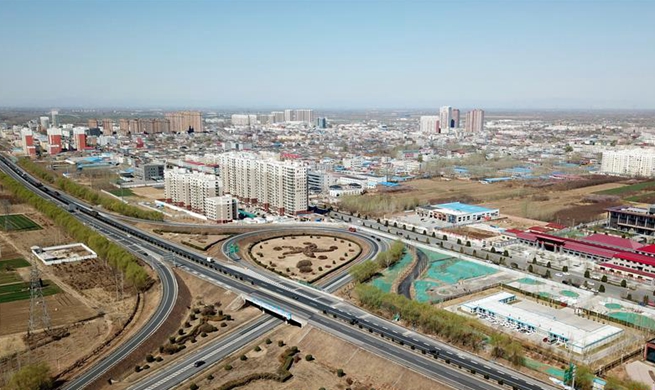MANILA, April 3 (Xinhua) -- With the region facing ever-higher disaster risks, developing Asia urgently needs to build its resilience before catastrophe strikes through better planning, setting aside government budget, and encouraging insurance, the Asian Development Bank (ADB) said in a new research released on Wednesday.
The new research was part of the Asian Development Outlook (ADO) 2019, ADB's flagship economic publication.
"Four out of every five people affected by natural hazards live in Asia," said ADB chief economist Yasuyuki Sawada.
"Asia has led the way on disaster risk reduction efforts in recent years, but more action is needed to tackle both vulnerability and responses at the national and the community level," he added.
"Disaster risk from natural hazards is a growing threat to the development and prosperity in the region, and the consequences tend to be more severe in developing countries affecting poor and marginalized people disproportionally," he said.
Sawada said developing Asia, home to more than four-fifths of the people affected by disasters globally in the past two decades, must prioritize strengthening its disaster resilience.
The report said the poor and marginalized households, small firms, and small and remote countries such as the Pacific island nations typically suffer the most from disasters.
And although climate change is spurring more natural hazards and rapid urbanization is increasing exposure to hazards, the report said only around 8 percent of Asia's catastrophe losses since 1980 have been covered by insurance.
The report urged countries to continue to reinforce disaster risk planning.
"Climate-friendly and disaster-resilient infrastructure are particularly cost-effective in reducing future disaster-related losses. This could include better water resource management to deal with droughts, earthquake-safe community buildings, and rebuilding mangrove forests to mitigate coastal erosion," the report said.
The report noted that rapid rebuilding often takes precedence after disasters, but that swift recovery should be considered alongside other objectives, including strengthening resilience to future hazards, considering the needs of the vulnerable segments of society, and restoring the economic and social dynamism of the affected area.
Key to this is collaboration among central and local government, nongovernment organizations, and the community in disaster response as seen following the earthquake in Nepal and Cyclone Pam in Vanuatu, both in 2015.












